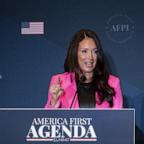Education is on the ballot, as 3 states weigh in on school choice
Compared to other issues (like the economy and immigration), education ranks lower as a priority for Americans. According to recent polls from The New York Time/Siena College and Emerson College, less than 2% of likely voters said it was their most important issue. But 92% of adults still said education was an important issue, while just 8% said it wasn't, in an October YouGov/The Economist poll.
Within education, a hot-button topic is school choice, specifically vouchers and educational savings account programs that direct government funding toward alternative and private education. Opponents fear these programs would take funding from public schools; supporters say they critically support parents' right to choose their kids' education.
National polls show that public opinion on the topic is mixed. In an October Noble Predictive Insights/Center Square poll, only 11% of registered voters ranked school choice as the top policy that would improve public education in America, coming in fourth among eight options, after focusing on core subject areas, increasing teacher pay and reducing classroom size.But according to a September Morning Consult/EdChoice poll, over 60% of adults supported school vouchers and ESA programs (although it's worth noting that EdChoice is an advocacy organization that supports voucher programs). A similar poll of only teachers showed a little less than half of them support the same programs.
In November, three states will vote on ballot measures related to school choice. In Nebraska, Referendum 435 will ask voters if they want to uphold or repeal Bill 1402, which sets aside $10 million annually to fully or partially pay for students to attend non-public schools. While an August poll from SurveyUSA/Split Ticket showed respondents to be divided, but largely undecided, on the ballot measure, an Emerson College/Midwest Newsroom poll last month showed almost two-thirds of registered voters are opposed to "using state taxpayer funds to help fund private schools," while only 29% are in favor.
In Colorado, Amendment 80 aims to enshrine a "right to school choice" in the state constitution, including language that opponents believe could lead to a voucher system. And in Kentucky, Amendment 2 asks whether public money should be allowed to go toward private schools. Similar to Colorado, opponents fear Amendment 2 could lay the foundation for a voucher program.
While there are no public polls of the ballot measures in Colorado and Kentucky, OpenSecrets has tracked fundraising by the committees that support and oppose them. In Kentucky, the vast majority of spending has been in support of expanding school choice, whereas in Colorado and Nebraska, those opposing school choice have far exceeded their opponents. Overall, across the three elections, committees against ballot measures to expand school choice have outraised supporters by over $1 million.
Meanwhile, Florida voters will weigh in on another education-related measure: Amendment 1 could make Florida's education system more partisan by requiring candidates for local school board to disclose their political party. Opponents of the amendment say it would bring politics into schools through partisan campaign contributions — although others argue that schools have been a political battleground for many years already. An average of the polls on Amendment 1 show that Floridians are divided on the issue, with 36% in favor of partisan school board elections, 37% in opposition and 27% undecided.







